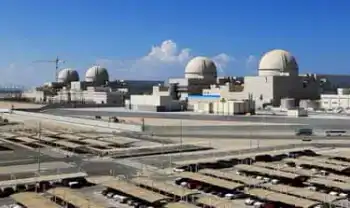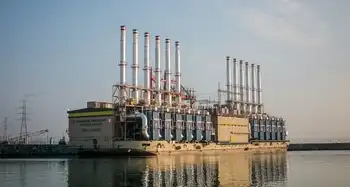Solar carries long-term benefits
SPRING HILL, FLORIDA - When Progress Energy Florida president and chief executive Vincent Dolan spoke in Spring Hill recently, everything he said about his company's production future seemed to make good business sense.
Natural gas, relative to other fuels, costs less than ever and emits only about half as much carbon as coal. It already generates about half of the company's power, a share that is likely to grow.
Coal is plentiful and cheap, Dolan said at the Greater Hernando County Chamber of Commerce's monthly breakfast. "We really feel as though coal is part of the equation.''
Nuclear might not be. Of the planned plant in Levy County, he said: "We've made a conscious decision to slow that project down.''
Once the company's plant receives its federal permits, probably in 2012, Progress Energy will determine if the market can support its cost, estimated at between $17 billion and $22 billion.
Solar? It doesn't sound likely at all. Progress Energy is open to buying solar power from other companies, but has no plans for plants of its own. "Solar today is about five times as expensive as natural gas to get into production,'' Dolan said.
Reasonable, as I said, but also discouraging. This energy future looks like the present: fossil fuels, maybe mixed with some nuclear power.
Progress Energy is the second-largest electric utility in the state and has 130,000 customers in Pasco County and 10,000 in Hernando.
Florida Power & Light Co. is, by far, the largest. I like its view of the future better.
It has two solar plants on line, and one about to open in Martin County that will have more capacity than the other two combined.
Florida Power & Light's website claims this is the first hybrid solar/conventional plant in the world, an arrangement that addresses one of the drawbacks to solar that Dolan mentioned.
Solar plants must be built to handle their maximum output, which can be expensive, considering they only approach that maximum about 20 percent of the time.
Florida Power & Light's solution was to build a solar plant next to an existing natural gas plant near Indiantown, said spokesman Mark Burbriski.
That way the company didn't have to duplicate, for example, lots of high-volume power lines that would run at low volume for most hours of each day and night.
When the sun isn't shining, natural gas accounts for all of the electricity. When it is, Burbriski said, "we can literally take our foot off the gas.''
The company - along with possibly adding two units to its existing nuclear plant at Turkey Point - wants to build three more solar plants and expand two of its existing ones.
The largest will generate only about one-tenth of the power of the company's largest conventional plant, so an emissions-free future sounds a long way off. But Burbriski could come up lots of reasons to push in that direction.
About half of the typical customer's energy bill goes to pay for fuel. "With solar, fuel is free,'' he said.
Having diverse sources of power insulates companies from spikes in the cost of coal or natural gas. Then there's the prospect in the not too distant future of punitive taxes on carbon emissions.
"Overall, the long-term benefits to solar are significant,'' Burbriski said.
Makes sense to me, too.
Related News

Two new BC generating stations officially commissioned
VANCOUVER - Innergex Renewable Energy Inc. is celebrating the official commissioning today of what may be the last large run-of-river hydro project in B.C. for years to come.
The project – two new generating stations on the Upper Lillooet River and Boulder Creek in the Pemberton Valley – actually began producing power in 2017, but the official commissioning was delayed until Friday September 14.
Innergex, which earlier this year bought out Vancouver’s Alterra Power, invested $491 million in the two run-of-river hydro-electric projects, which have a generating capacity of 106 megawatts of power. The project has the generating capacity to power 39,000…




